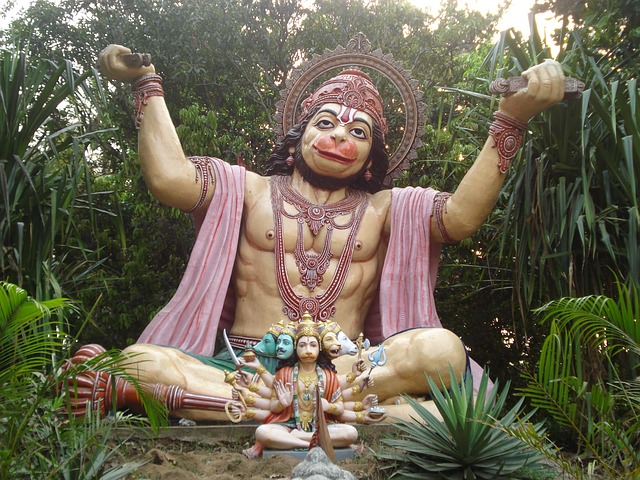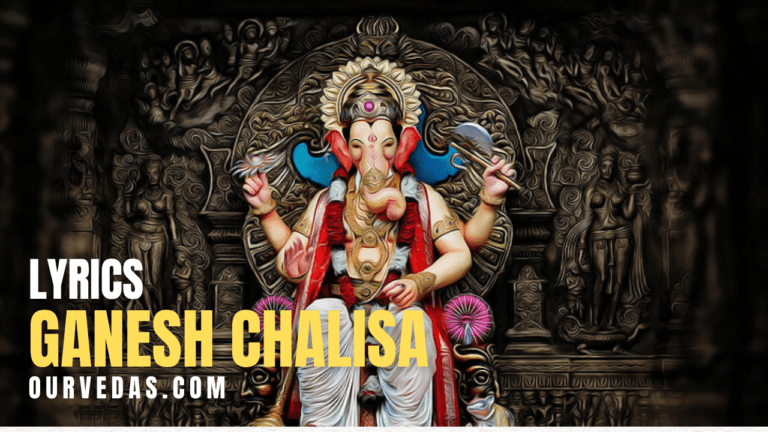Hanuman Shabar Mantra – Origins and Benefits
There are different mantras in the rich tapestry of Hindu spirituality to serve as powerful tools for devotees seeking strength, protection, and divine grace. Among all these, the Hanuman Shabar Mantra has gained a special place because this mantra is held in high esteem for its simplicity and effectiveness. This article delves into the origins, significance, benefits, and practical applications of the Hanuman Shabar Mantra, which makes it a comprehensive guide for both seasoned practitioners and newbies alike.
Understanding the roots
“Shabar” is the term that defines a simple form of devotional expression that can be easily reached by all, particularly those who may not be good at Sanskrit. Hanuman Shabar Mantra is a folk version that symbolises the spirit of devotion to Lord Hanuman, representing strength, devotion, and loyalty.
Hanuman is a hero in the epic Ramayana, but he represents infinite energy, courage, and unshakable faith. His worship can help practitioners connect with their inner strength and overcome all obstacles.
The Hanuman Shabar Mantra is just a phrase composed to invoke the presence and blessings of Lord Hanuman. This mantra can be chanted in any regional language; however, the core message would always be the same: pleading protection, support, and ridding oneself of all kinds of negativity.
Significance and Benefits
The first reason people chant the Hanuman Shabar Mantra is its protective aspect against negative energies. The mantra creates an aura around the practitioner’s body that prevents harm from coming to him.
If chanted daily, this mantra will help one develop more mental clarity and focus. It will also help practitioners curate a balanced mindset, leading to better decision-making and emotional resilience.
He is the remover of obstacles. Chanting this mantra aligns devotees with Hanuman’s energy, giving them the courage and determination to face challenges.
Most practitioners have recorded their testimonies with the power of the Hanuman Shabar Mantra through healing physically and emotionally. Because of its vibrational energy, it is believed to promote general welfare.
It helps develop devotion to Lord Hanuman and brings him closer to the divine, making a devotee realise the importance of elements such as humility, service, and devotion.
How to Practice the Hanuman Shabar Mantra
First, set an intention to chant. As you prepare to chant, see what you are calling into your life: protection, strength, or healing.
Devotees normally prefer the morning or evening hours for the practice since these are considered times of energised power. You must decide on a quiet place without disturbance so that you can concentrate more on your chanting.
You can chant the Hanuman Shabar Mantra as many times as you feel comfortable, whether for a certain number of repetitions or for a certain duration. The key is maintaining heartfelt devotion throughout the process. Some practitioners add rituals, such as lighting a diya, offering flowers, or even making a little altar dedicated to Lord Hanuman, to enhance the spiritual atmosphere of the place.
Meditate about Hanuman’s qualities by reciting the mantra, picturing him, and filling your body with his strength and beauty.
The Community of Devotees
Often enough, this leads to the creation of a vibrant living community as experiences mingle and bonding feelings arise. “Satsangs” are normally held regularly; devotees congregate here, chanting in huge groups that create an amazingly high-energy group synergy propelling the mantra’s energy.
Community programs make a huge difference in a person’s spiritual journey. Share the message of Hanuman and personal testimony of transformation, and spur each other on in practice.
How to worship Hanuman?
Worshipping the monkey god Hanuman is a sacrament of devotion that is full of discipline and spiritual value. This is the avatara of power, vigor, and indestructible obedience-this most worshipped deity does confer protection and helps with overcoming the dilemmas in life of those who would worship him. This bit of writing can be considered advisory, guiding on the correct means of worshipping the Hanuman, ritualistic offering, mantras or prayers as well as the whole importance of doing such a revered act. 
Before the worship practices, it is essential to know who Hanuman is and why his worship is significant. He is a godly figure worshipped for his loyalty to Lord Rama, as portrayed in the ancient Indian epic, the Ramayana. His extreme strength, speed, intelligence, and devotion make him an icon of empowerment and dedication for millions.
Among those advantages bestowed through Hanuman’s worship are:
- Spiritual Strength: Devotees through their devotion to Hanuman, usually gain strength in adversity, getting the courage to face the adversities of life.
- He is believed to protect negative energies and evil forces. The devotees take shelter in him for protection and safety.
- Healing: It is said to be promoting healing, not only in the physical body but even emotionally.
- Devotion and Humility: The qualities of Hanuman make one humble, selfless, and devoted.
Preparing for Worship
A non-cultivating, spotless, uncluttered section within your dwelling is best for one to consecrate oneself into worship with Hanuman Shabar Mantra. It may be any form of an altar, for example.
If possible, prepare a small altar with a picture or idol of Lord Hanuman. Decorate it with flowers, a clean cloth, and other auspicious items.
Collect items for your offerings to Lord Hanuman. These can be:
- New flowers
- Fruits, especially bananas
- Incense sticks for perfume
Put on fresh clothes after taking a bath; this is almost like purification for worship, giving you more spiritual strength to perform the act of worship.
Rituals of Worship
Morning prayers set the day right. The first hours of the day are called “Brahma Muhurta.” It is considered a propitious time for worship. Here are some morning rituals:
Light an oil lamp (diya), which represents the removal of darkness and evil forces. Chant the Hanuman Chalisa, a 40-verse hymn in praise of Lord Hanuman that describes his virtues and acts. Reciting it multiple times boosts devotion and gives peace to the soul.
Offer fresh flowers to the idol or picture of Hanuman as your token of respect and love. You might offer simple prayers, seeking inner strength, guidance, and protection throughout the day. You might repeat such mantras:
“Om Hanumate Namah”
This is the mantra for Hanuman’s blessings.
Evening Devotion
Evening rituals can strengthen your bond with Hanuman:
- Recite the Sundar Kanda: This chapter is all about Hanuman. His qualities can be reminisced upon if they were to be recited right before bed.
- Bhajan and Kirtan: Attend community gatherings where bhajans and kirtans are offered for Hanuman. Group energy and devotion intensify spiritual experiences.
- Meditation: Meditate on Hanuman’s qualities, such as strength, loyalty, and wisdom, for a few minutes. See him surround you with protective energy.
Watch fastings
It is believed that one can fast on Tuesdays and Saturdays, which are specially dedicated to Hanuman, and this can bring good fortune. Fasting can be either of two types: either annulling food completely or merely eating fruits and nuts in less quantity.
Maintain a mind that is focused on devotion all day long. Pray and meditate, keeping your fast to Hanuman to seek enlightenment and strength. Finish your fast with an offering to Hanuman by giving a sweet or fruit to the family or the needy.
Special Celebrations and Festivals
Devotion is heightened by celebrating festivals associated with Hanuman. A few notable festivals include:
Hanuman Jayanti: This birthday is observed on the full moon in the month of Chaitra. Attend samuh prayers and recite chants and festivals.
Rama Navami: This is Lord Rama’s birthday, where Hanuman is actively worshipped. The community participates in it along with singing of bhajans and participation in puja.
Conclusion
By putting before it what is asked as the Hanuman Shabar Mantra that epitomises love as well as the pursuit of strength, it guides to find rest in adversity. This can be a man’s faithful companion in traversing over the journey: with a protection spirit, along with spiritual improvement for that intense feeling of soul.
Remember, it is also the words that you utter which bring along with them the might and faith and intention, too. May Lord Hanuman be by your side forevermore as he gifts all goodness and strength to thee.
FAQs
Who is Hanuman?
He is a great figure in Hindu mythology. God worshipped, and the symbol of strength, devotion, and loyalty is Hanuman. His form has always been depicted as that of a monkey god who has extraordinary powers like superhuman strength, agility, and the ability to fly. He is an important character in the ancient epic Ramayana. In this epic, he plays a significant role when the demon king Ravana captures Lord Rama’s wife, Sita.
Hanuman epitomises absolute devotion toward Rama. He personifies service, humility, and faith. Besides being a hero in the Ramayana, he embodies the qualities of courage and resilience, which makes him a favourite among devotees who seek protection and strength. Devotees often chant Hanuman’s names and mantras, such as the Hanuman Chalisa, for blessings for courage, healing, and protection from evil energies.
His worship has crossed the boundaries of various cultures and languages, which is why he is a highly revered deity in many parts of India and beyond. Hanuman’s parents were Kesari and Anjani. Hanuman is the son of Anjana and Kesari. Anjana was a celestial nymph, and Kesari was the monkey king, also referred to as the king of the Vanaras.
He is often referred to as the “Son of Wind” because Vayu, the god of wind, is said to have played a hand in his birth, thus giving him great strength and the ability to fly. Altogether, these figures make up the divine nature and extraordinary powers of Hanuman.
Is Hanuman still alive?
The belief or lack thereof in the fact that whether he still is alive or not would call for faith and spirituality over science. He remains, by all means, a perpetual character in Hindu mythology and is popularly addressed as “Chiranjeevi,” one who lives forever. His presence is believed by the books to exist and by people as well, so people will invoke him to draw some energy, protection, or some form of support from him.
Actually, it’s quite the opposite-indeed; he isn’t a physical being at all like us, as far as any of these meanings of being “alive” go; however, for devotees who devoutly worship him, most will claim his divine energy or grace is there to be felt through prayers or chanting.
Read: Gayatri Mantra Lyrics





